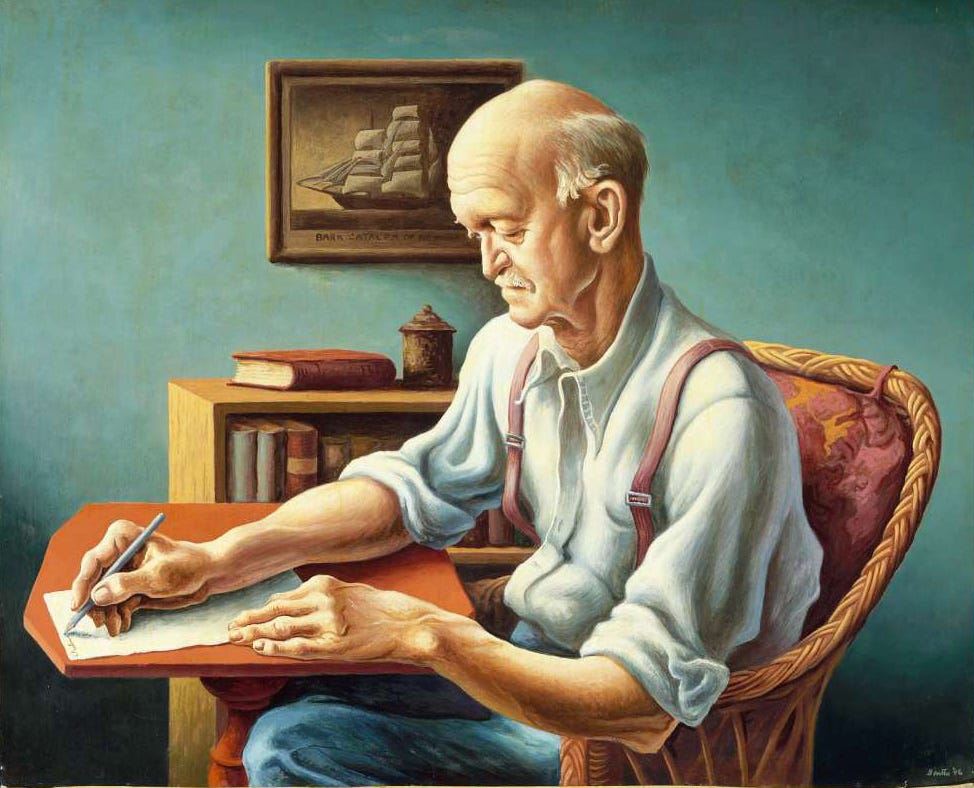Eulogizing Editors
My strange addiction.
Something I’ve taken to collecting recently: obituaries of New Yorker editors. Like numismatics or philately, it’s not the most useful hobby, but it satisfies two urges. For one, it’s pleasant to read glowing reviews of an editor’s body of work, since I am an editor. And it’s also pleasant to read extremely good and tight pieces of writing. The authors must feel an absurd amount of pressure to write glistening little jewel obits. Given the topics, readers are especially primed to pay attention to sentence structure and word choice. And perhaps the deceased editors observe as well, from far above.
Perhaps as a result the obituaries are tremendous works. Behold the first graf of this sendoff of long-time editor John Bennet:
Read that one out loud if you’re not quite convinced that it sings.
The obituaries are often straightforwardly, surprisingly hilarious. Robert Gottlieb, a “secular Talmudist,” “ministered” to his writers. Gottlieb apparently woke up in the middle of one night and called Joseph Heller with a realization: his upcoming book should be “Catch-22,” not “Catch-18.” “It’s funnier,” said Gottlieb.
Another Robert, Bingham, from 1982, left one writer the same note regularly: “My patience is not inexhaustible.” Miss Gould applied to the New Yorker at the age of 22 by mailing in the most recent copy, with every grammatical error and inconsistency highlighted in blue pencil (in response to which the editor-in-chief apparently bellowed “Find this bitch and hire her!”). Roger Angell, who died at the ripe age of one hundred and one, “may have carried on one of the longest engagements with psychotherapists in the city’s history.”
As one might expect from New York’s toniest publication, the obituaries reveal wonderful little nuggets of blueblood drama. Angell, who edited Nabokov, Updike, and Thurber, was the son of the magazine’s founding fiction editor, Katharine Sargeant Angell White, who married E.B. White (he of Stuart Little and Charlotte’s Web fame). She did so without mentioning it to her son, who was nine at the time: he learned about it from a newspaper column. When Angell White died, “her office – a prime piece of real estate – was left vacant for several years,” to “let the meaning drain out… so its future inhabitants wouldn’t get any big ideas about who they were.”
Of course that kind of sustained legacy, the son doing his mother’s job in his mother’s office, leads to deeply rooted editorial rules and practices, which the obituaries do their best to show off. See the comma work: “Bennet, who died, of cancer, earlier this month, a few weeks short of seventy-seven…” You can’t get away with that just anywhere.
One can dispute the following characterization of the New Yorker’s prose in the obituary of “Grammarian” Miss Gould (the title was invented for her): “a kind of Euclidean clarity—transparent, precise, muscular.” Personally I find the endless accent aigus effeminate rather than beefy. But it’s undoubtedly a style, and any style maintained long enough is worthy of at least some admiration.
I will leave you with the obituary of Robert Bingham, in the hope that you will appreciate it, since it is from 1982 and was rather hard to find. And I may start, as Miss Gould did, to inscribe “Have we completely lost our mind?” in the margins of pieces I edit.




